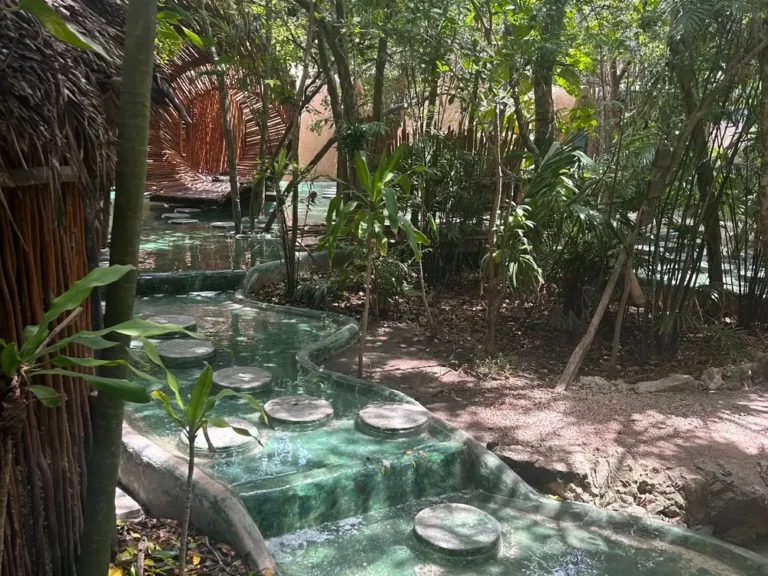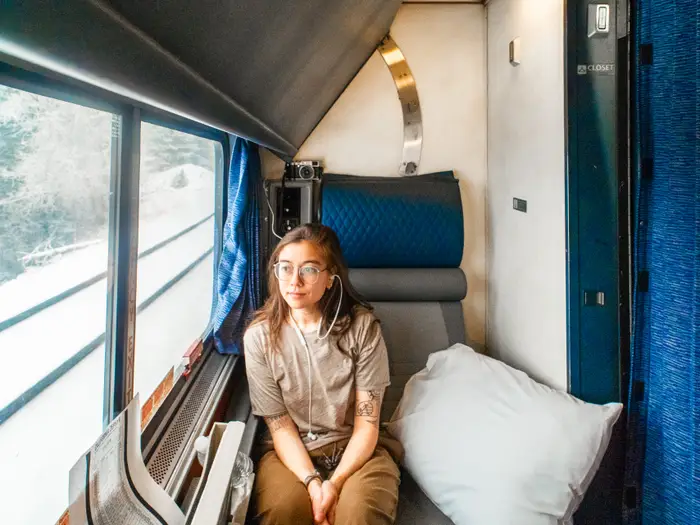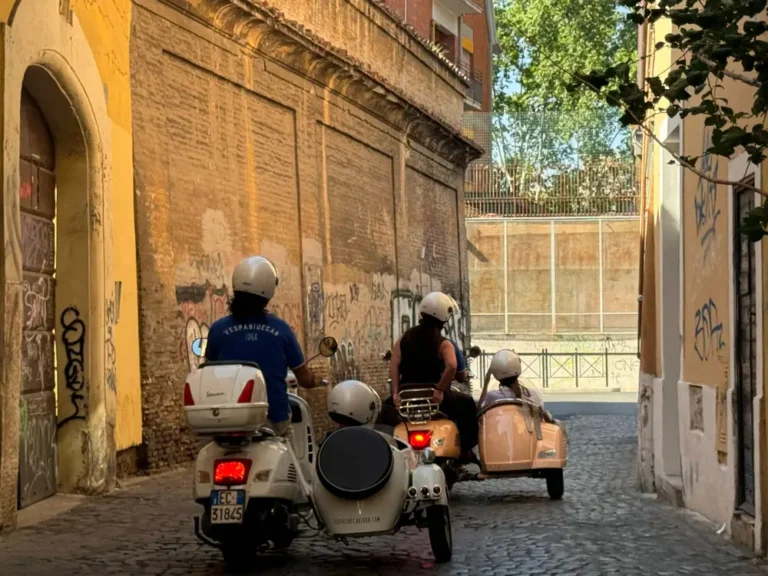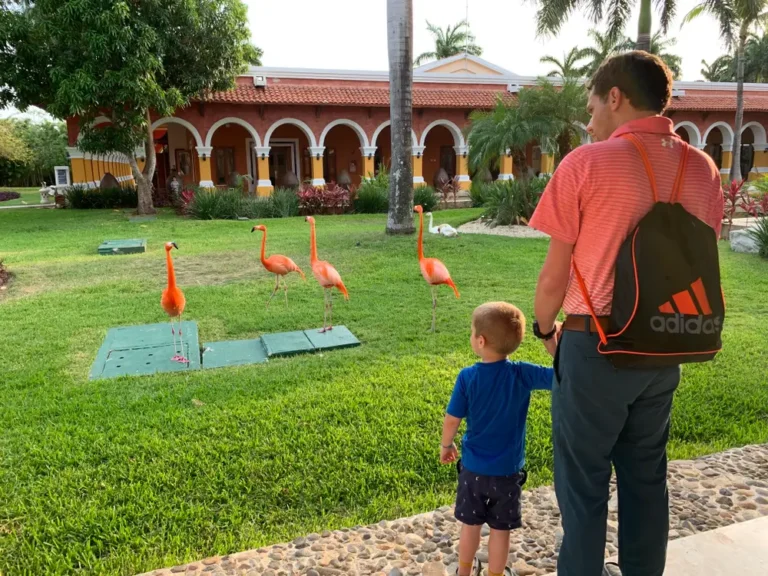At this McDonald’s in Italy, your Big Mac comes with a side of ancient ruins
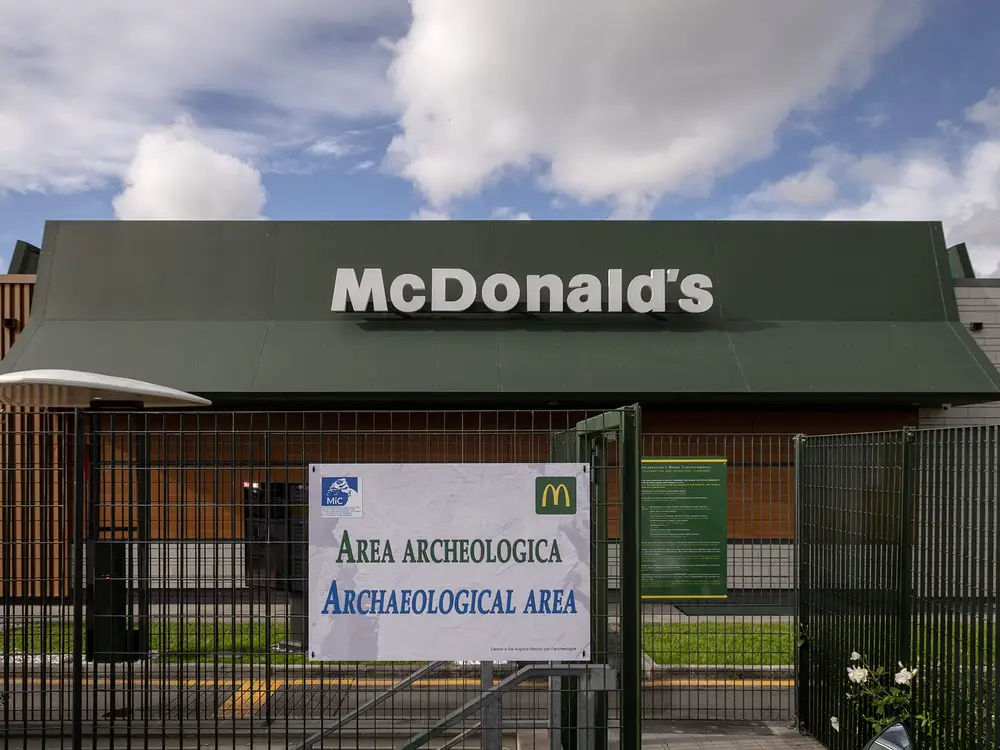
In Frattocchie, a tiny town on the outskirts of Rome, a McDonald’s was built over an ancient Roman road after the brand helped preserve it.
From the outside, this McDonald’s in Italy may seem like a regular restaurant, but walk past its gates and over its glass flooring, and you’ll spot some eerie details, like three skeletons embedded in the rocks below.
In 2014, workers building the restaurant on the outskirts of Rome stumbled upon an ancient Roman road.
Such finds can usually halt the construction process, but in this case, “McDonald’s integrated the archaeological site into the design of the restaurant, spending about 300,000 euros [$315,000] to enclose the ancient road in its own gallery,” wrote author Gary He in his new book, “McAtlas: A Global Guide to the Golden Arches,” which comes out later this month.
The result is what McDonald’s Italia’s managing director Mario Federico described as the chain’s “first museum-restaurant.”
Global brands and luxury fashion houses have been known to contribute to Italy’s restoration efforts, with Bulgari, Fendi, and Tod’s helping fund work on the Spanish Steps, the Trevi Fountain, and the Colosseum, respectively.
Apart from offering brands visibility, participating in such efforts “is a good example of how the public and private sectors can collaborate effectively on reclaiming cultural heritage,” Federico told The Daily Telegraph.
Here’s a closer look at this one-of-a-kind McDonald’s.
The McDonald’s is in Frattocchie, about 12 miles southeast of Rome.

A McDonald’s featuring a path that connects to ancient Rome’s most famous road is in Frattocchie.
Frattocchie, which was known as Bovillae in ancient Rome, is a tiny hamlet in Marino, Italy.
It is part of the Lazio region, which has a population of more than 5 million.
Frattocchie was once known as an important religious center, but its recent popularity among tourists is partly due to McDonald’s.

The Appian Way was constructed in 312 BC. It started in Rome and eventually stretched out to the port city of Brindisi. Today, the roads are covered because of the urbanization of Rome.
What is now known as Frattocchie was connected to other Italian cities via roads that led to the Appian Way, which was constructed starting in 312 BCE and is considered Europe’s first major highway.
At first, the Appian Way ran for 132 miles between Rome and Capua in Campania, southeast of Rome. Eventually, it was extended across the country to the port of Brindisi, close to the Adriatic Sea. Today, the road is a UNESCO World Heritage site.
In 2014, workers constructing a new McDonald’s discovered an offshoot of the road in Frattocchie.
Before the restaurant opened in 2017, McDonald’s partnered with archeologists to restore the remains of the ancient Roman road.

A board displaying the history of the archeological findings at the viewing gallery built under the McDonald’s in Frattocchie.
During early archeological investigations, Rome’s Superintendency for Archaeology said it had unearthed a 150-foot-long road that diverged from the Appian Way.
The section of the road is believed to have been constructed between the 1st and 2nd centuries BC. News outlet The Local reported that travelers stopped using it three centuries later.
Archeologists discovered the path had become a burial site and contained the skeletons of three men.
McDonald’s donated 300,000 euros toward the three-year restoration, and afterward, the road was incorporated into McDonald’s restaurant design.
Today, visitors can see the ancient road as they walk over a glass floor into the restaurant.

The road seen here is made up of local volcanic rocks. The strips of white light above is the glass flooring of the restaurant, which allows visitors to view the gallery underneath.
To make the road part of the restaurant, McDonald’s built a glass walkway over it. The walkway begins by the parking lot and stretches into the restaurant, so visitors can look down and see the ancient road as they enter.
“While they enjoy their meals, customers can look down through a glass floor into the site,” Gary He wrote in “McAtlas.”
But visitors don’t have to purchase a meal at McDonald’s to view it. The site can be accessed, free of charge, by a separate entrance behind the restaurant’s drive-thru.
Between the stones of the road are casts of three 2,000-year-old twisted skeletons.

Three skeletons were found during the excavation of this site, which were later preserved using resin cast.
This restored off-shoot road is much smaller than the original highway. Yet, every corner is steeped in gritty historical details, the spookiest of which are the skeletons of three adult males embedded in the rocks.
These were found in the gutters during the excavation process and were removed. They were then replicated using resin casts of the bones.
“The rubber, applied in such a way as not to alter or damage the finds in any way, copied every minute detail of the burials,” a spokesperson for McDonald’s Italia told Newsweek.
The skeletons on display in the gallery are these recreated resin casts.
Above the glass floor, you’re transported back to the present day.

The McDonald’s in Frattocchie has a contemporary design. Pictured is another McDonald’s that looks alike.
Aside from its section of glass floor, the restaurant resembles other McDonald’s restaurants. It features e-kiosks, digital cash counters, a salad bar, and light wooden accents. It also offers different seating options, from family-friendly tables to bar stools.
A spokesperson for McDonald’s Italia told Newsweek that the 5,382-square-foot restaurant has 200 seats and an outdoor play area.
It serves the classics such as the Big Mac and Italian specials like the Gran Crispy McBacon.
There’s also a McCafe. While visitors place their orders, they can look down and see one of the skeletons below.

Even while placing their orders, visitors get a glimpse of the ruins underneath at this McDonald’s.
This location has a McCafe integrated into the restaurant. It features the brand’s usual hot beverages as well as some desserts, like pistachio-flavored croissants and McFlurry options.
What sets it apart from other McCafe locations is the glass floor that gives diners a peek at history as they place their orders.
“McAtlas” author Gary He, who has traveled to over 100 McDonald’s around the world, told B-17 the Frattocchie restaurant is worth visiting, naming it as one of the most unique locations he’s visited so far.
He said he was amazed the restaurant allowed visitors to walk around the road and touch everything, including the skeletons. “When I saw that, I thought, ‘Wow, this is wild,'” he said.
The McDonald’s and its adjoining archeological site are open year-round from 7 a.m. to 2 a.m. local time.


